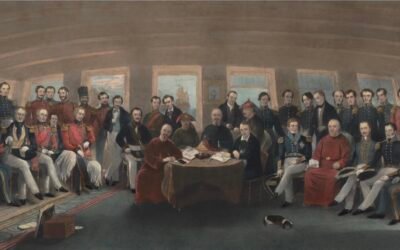International observers continue to watch whether Taiwan respects the Covenants it incorporated into its domestic law in 2009. In the case of Tai Ji Men, it doesn’t.
by René Wadlow*
*A paper presented at the conference “Looking at the Development of Human Rights in Taiwan from the February 28 Incident and the White Terror to the Tai Ji Men Case,” hosted by the National Memorial Hall of February 28 and the Taiwan Association for Financial Criminal Law Study, Taipei, ROC, March 5, 2024.

I am pleased to meet again with human rights specialists and concerned citizens in Taiwan. I was one of the foreign non-governmental observers at the Review of Taiwan’s compliance with the United Nations Two Covenants in February 2013. I had come to discuss human rights issues prior to the Review and again in 2014 to learn about the progress in the implementation of the Two Covenants: the International Covenant on Civil and Political Rights and the International Covenant on Economic, Social and Cultural Rights, which Taiwan incorporated into its domestic law in 2009.
The Review of the States Party to the Covenants usually takes place at the United Nations in Geneva, Switzerland where the Secretariat of the UN Human Rights Council is located. However, as the Republic of China, Taiwan, is not a UN member, it was decided by then President Ma to have a review in Taipei with individual experts who had participated in reviews in Geneva. In addition, several representatives of non-governmental organizations familiar with the Geneva procedures were also invited.
At the UN in Geneva, I had the reputation of being an “Old China Hand” having had intensive, if sometimes stormy, public discussion with diplomats from the People’s Republic of China. I was the first to raise the issue of freedom of belief and conscience of the Tibetans, most of whom are Buddhists, in 1986.
Today, the issue of the religious and cultural rights of the Tibetans is still with us, to which has been added international attention given to the Uyghurs, who are mostly Muslim. Crucial human rights issues raised at the United Nations are rarely solved. However, seeds are planted by the attention given. The seeds may give fruits later.

Thus, I was very interested in what human rights structure and practices existed in the Republic of China too. Unjust structures within a society, expressed by political manipulation, economic exploitation, and social inequalities create conditions under which human rights are denied. Thus, there is a growing recognition that action must be taken at the local, the national, and the international level for the protection of vulnerable groups such as children, migrants and refugees, domestic workers, Indigenous peoples, people with disabilities, and the victims of domestic violence.
The United Nations has created guidelines such as the Convention on the Rights of the Child, but much needs to be done so that each individual is treated with respect and compassion.
The Association of World Citizens has placed emphasis on the issue of migration, which is a worldwide trend. Migration has an impact on citizenship laws, property regulations, marriage and divorce, multinational education, and taxation agreements. Here, there is a need to focus on migration to Taiwan as well as the legal protection of Taiwanese working in Mainland China.
In addition to the question of migration to and from Taiwan, the Association of World Citizens has been concerned with the rights of taxpayers and avenues of redress when these rights have been violated. Particular attention has been given to the Tai Ji Men case.

As Min-Yuan Tan and Ching-Bai Huang pointed out in their book “End it from Where It Started: Fabricated and Unjust Tai Ji Men Criminal and Tax Cases,” this lengthy tax issue has taken time and energy away from the Tai Ji Men Qigong Academy, which could have been better spent on the high aims for which Tai Ji Men was incorporated in 1966. Tai Ji Men has been very active in cultural exchanges with other countries so that many people have learned of the rich cultural life and heritage of Taiwan.
Today, we need to promote a global spirit based on trust, solidarity, and the practice of goodwill. A harmonious future depends on the capacity to work together for the common good with the standards of human rights before us as guidelines. There are many difficulties on the path. However, there are growing efforts for social justice, and real progress is being made through effective cooperation.

René Wadlow is the President of the Association of World Citizens (AWC), an international peace organization with consultative status at the United Nations ECOSOC (Economic and Social Council), and the AWC’s Representative to the United Nations institutions in Geneva.



